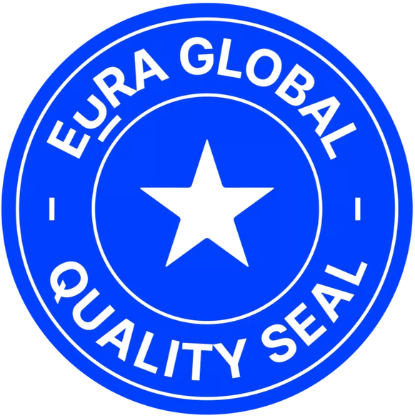Inter Relocation – Your CEE Relocation Experts
Backed by 15 countries, one team, and decades of local expertise
New look. Same values.
Brand update · May 2025
Our country guides combine essential local knowledge with expert insight—from rental rules to cultural etiquette—helping assignees and HR teams prepare with confidence.
That’s why our experts work closely with you to develop a tailor-made plan that aligns perfectly with your company’s goals and needs.
With extensive expertise and a commitment to excellence, our team is prepared to manage any number of employee relocations with efficiency, precision, and care.

Backed by the EuRA Quality Seal, we provide the quality service your business can trust.
If you’re ready to enhance your current relocation program or establish a new one to better support your employees’ transitions, we’re here to help.
With Inter Relocation, you can be confident your employees are supported with exceptional care and professionalism at every stage of their journey.
Discover how our expertise, personalized service, and industry-recognized quality set us apart.
Management on every level.
We manage your assignment planning, preview visits, home search, immigration compliance, settling in, tenancy management and much more.
Tailored support for you.
Taking you through your relocation process without any hidden or extra costs.
Your peace of mind is our priority.
We ensure your secure relocation journey by staying updated on laws and regulations, providing consistent support from start to finish.
Your needs come first.
You need us to be flexible and we’ve grown by listening to that need.
Relocation services since 2002
We’ve been there for our clients and partners for more than 20 years.
International award-winning company.
The guaranteed standard of service you need backed up by industry standard quality certification.
Stay Informed with the Latest Industry News & Insights. Read our blog for valuable updates on the global mobility marketplace and company news!